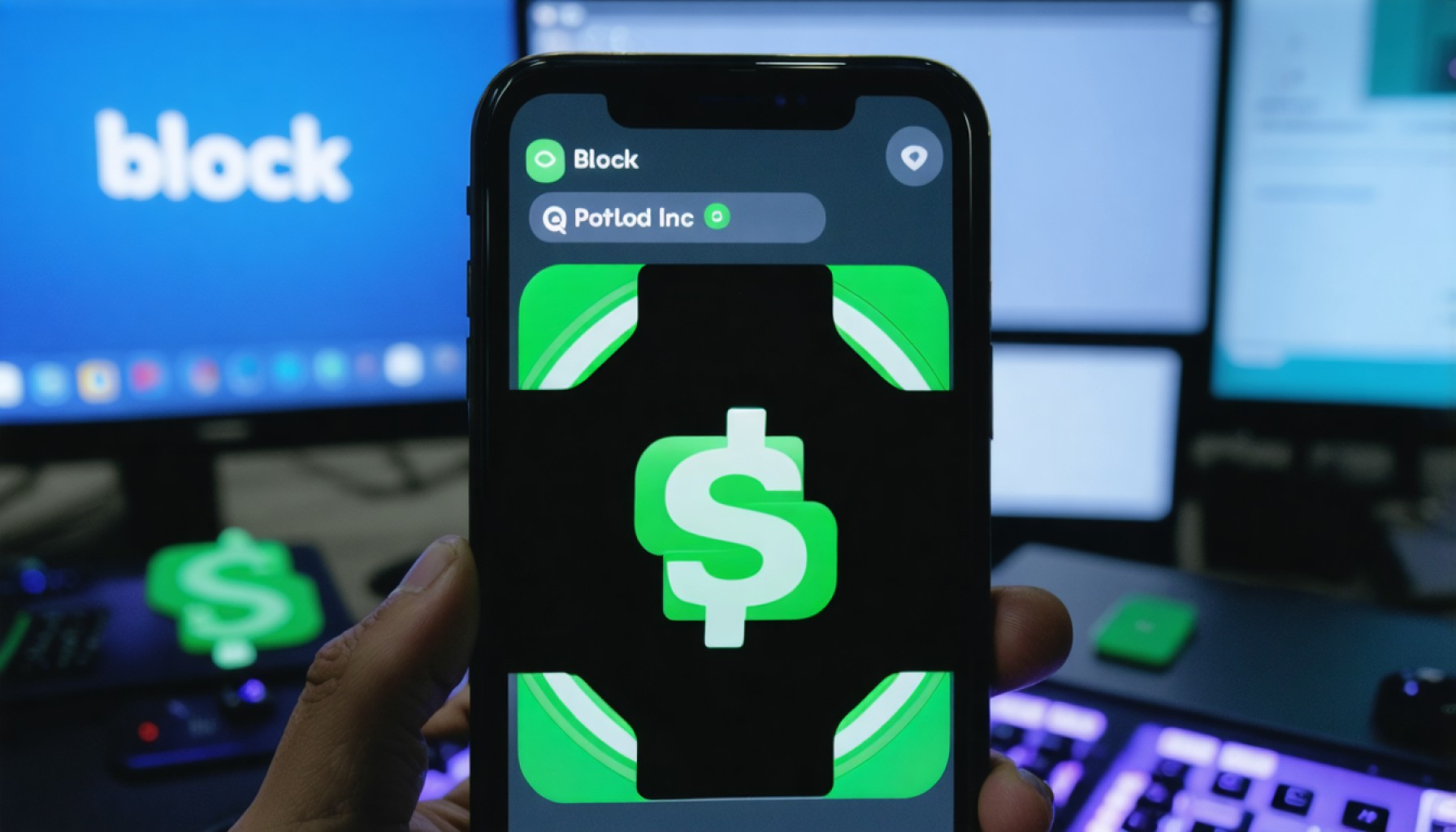- Block Inc. faced a $40 million settlement with the NYDFS over inadequate AML compliance in Cash App operations.
- Allegations centered on insufficient measures to detect and report suspicious cryptocurrency transactions, notably in Bitcoin.
- Despite regulatory challenges, Block’s financial performance remains strong, with 2024 revenues hitting $6.03 billion and a 51% increase in per-share earnings.
- Cash App maintains robust growth, now boasting 57 million active users.
- Previous compliance issues resulted in an $80 million penalty across multiple states.
- Integration with TaxBit showcases Block’s innovative approach to simplifying crypto tax tracking for users.
- The situation underscores the vital need for fintech firms to balance innovation with strict regulatory adherence.
In the bustling world of digital payments, where the click of a button can send currency across the globe, Block Inc. stands as a giant. Foundered by the visionary Jack Dorsey in 2009, the company has recently found itself in the eye of a regulatory storm. The New York Department of Financial Services (NYDFS) plunged into an extensive investigation of Block’s Cash App operations, ultimately leading to a $40 million settlement. This was more than a mere blip for a firm that has maneuvered through financial innovation like a seasoned sailor navigating stormy seas.
At the heart of the settlement were allegations of inadequate measures to detect and report suspicious transactions—a critical element of Anti-Money Laundering (AML) compliance. Cash App, a star performer in Block’s portfolio, reportedly lacked the robust screening processes necessary for handling volatile cryptocurrency transactions, especially those involving Bitcoin. The settlement has become a high-profile cautionary tale, echoing through the corridors of fintech about the indispensable importance of compliance.
Yet, Block remains resilient, a nimbly evolving behemoth. Despite the regulatory scrutiny, it still shines with an impressive end-of-2024 performance. Revenues surged to $6.03 billion, while per-share earnings climbed an astonishing 51%—a testament to the unwavering confidence of its global customer base. As Cash App continues to grow, with a staggering 57 million active users, its allure in the world of decentralized currency shows no sign of waning.
The roadblock faced with NYDFS is not the first in Block’s journey—earlier in the year, it faced an $80 million blow due to similar AML compliance issues across multiple states. However, the company’s innovative spirits remain untamed. Cash App’s integration with TaxBit illustrates a forward-thinking approach, allowing users to smoothly track their crypto-related taxes, further cementing its position in the digital finance world.
What’s the lesson in Block’s unfolding saga? Navigating the digital financial frontier requires more than just visionary innovation; it demands an unyielding commitment to regulatory compliance. Companies like Block must dance delicately between fostering growth and adhering to the meticulous demands of financial watchdogs. Yet, Block’s endurance illustrates a compelling narrative in this evolving landscape—a story of adaptation, vigilance, and an unwavering drive to forge ahead.
Unlocking Block Inc.’s Future: The Balance Between Innovation and Compliance
Understanding Block Inc.’s Regulatory Challenges: A Deeper Dive
Block Inc., a leader in digital payments, recently found itself making headlines due to a $40 million settlement with the New York Department of Financial Services (NYDFS). The focus was on alleged deficiencies in their Anti-Money Laundering (AML) protocols, particularly in handling cryptocurrency transactions via Cash App. This incident provides a critical reminder of the rapidly evolving responsibilities fintech companies face in balancing cutting-edge innovation with stringent regulatory compliance.
The Importance of AML Compliance in Fintech
Anti-Money Laundering (AML) compliance is essential for any financial entity, particularly those dealing with cryptocurrencies. Cryptocurrencies are potentially susceptible to illicit activities due to their anonymous and decentralized nature. Thus, robust screening processes and transaction monitoring systems are indispensable. According to the Financial Action Task Force (FATF), these measures are vital in safeguarding financial systems globally.
Block Inc.’s Recovery and Growth
Despite recent regulatory challenges, Block Inc. reported impressive financials at the end of 2024, including a revenue peak of $6.03 billion and a remarkable 51% increase in per-share earnings. Such growth reflects the firm’s strong customer base and continued trust in its services, even amid the scrutiny.
Cash App’s Evolution and Financial Innovations
Cash App, one of Block’s flagship products, boasts an impressive user base of 57 million active users. Its integration with tools like TaxBit not only streamlines managing crypto-related taxes but also signals Block’s commitment to enhancing user experience through innovative solutions. This strategic move positions Cash App favorably within the competitive landscape of digital financial services.
Real-World Use Cases and Life Hacks
1. Maximizing Cash App Benefits: Cash App users can leverage its investment features, including buying stocks or Bitcoin, making it a versatile tool for personal finance management.
2. AML Best Practices: To protect against potential fraud, regularly update security features and stay informed about transaction monitoring improvements.
Market Trends and Predictions
Given the increasingly strict regulatory environment, fintech companies are anticipated to invest heavily in compliance technologies. According to a report by Allied Market Research, the global market for AML solutions is projected to grow significantly, driven by technological advancements and regulatory demands.
Pros and Cons Overview
Pros:
– Innovative financial solutions drive user engagement.
– Demonstrated resilience and adaptability amid challenges.
Cons:
– Regulatory scrutiny could impact reputation and operations.
– High costs associated with compliance modifications and settlements.
Recommendations for Block Inc. and Similar Companies
1. Enhance Compliance Infrastructure: Continuous investment in AML technologies and compliance training for internal teams is essential.
2. Foster Transparent Communication: Proactively communicate compliance efforts to maintain trust with stakeholders and customers.
3. Diversify Offerings with Caution: While innovation remains crucial, ensuring that all new products meet regulatory standards should be a priority.
Conclusion
Block Inc.’s journey underscores the crucial balance between innovation and regulatory diligence. By learning from these challenges and reinforcing compliance measures, companies in the fintech space can not only survive but thrive.
For more insights on the evolving fintech landscape, explore Block Inc.’s official site.
